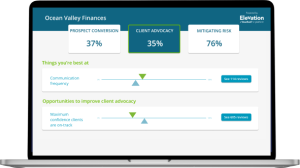As the FCA’s consultation on the Advice Guidance Boundary (CP25/17) progresses, we are carefully considering what this could mean for consumers, providers, firms and the future of financial advice.
What is Targeted Support?
The proposed Targeted Support reforms aim to close the advice gap by enabling authorised firms to make standardised, appropriate suggestions for consumers in similar circumstances, without crossing into regulated personal advice. This has the potential to provide meaningful help to millions currently navigating pensions and investments with little or no support.
What are the implications?
Firms will be expected to walk a fine line, providing enough support for consumers to make good decisions for their pensions and investments, without inadvertently misleading consumers into thinking they’ve received tailored advice.
At VouchedFor, we’re following this consultation closely.
We welcome the intent to close the advice gap. But we also recognise that how Targeted Support is implemented will be critical to its success, both in making it work well for consumers and in keeping firms out of regulatory difficulty.
Consumer Duty still applies
One thing is clear: even though Targeted Support sits outside regulated advice, Consumer Duty still applies.
As the FCA states:
“Firms must adhere to their Consumer Duty obligations to monitor and regularly review the outcomes their customers are experiencing to ensure that the products and services provided are delivering outcomes consistent with the Duty.”
— CP25/17, Section 8.14
That means understanding not just what support was given, but how consumers interpreted and acted on it. Did they realise it wasn’t personal advice? Was it helpful, relevant, or potentially confusing?
As FTAdviser put it:
“Firms should actively seek consumer feedback and refine their methods based on the facts – what is working and what is not.”
— FTAdviser, 2024
The role of feedback in meeting the Consumer Duty
As firms deliver support at scale, understanding how it lands with real consumers is more important than ever.
To spot harm early, refine support, and meet regulatory expectations, firms and providers will need effective ways to gather and interpret consumer insight.
For Targeted Support to succeed, outcomes should be monitored as rigorously as they are for regulated advice.
How can firms considering Targeted Support track consumer outcomes?
Our enhanced client survey, Elevation, already helps firms assess the quality and impact of regulated advice. We’re now exploring how it could also support those offering Targeted Support.
This review includes considering how we can help firms offering Targeted Support to:
- Understand how consumers perceive the support provided
- Considering monitoring outcomes at the segment level, in line with the FCA’s scenario-based approach
- Identify potential confusion, harm, or unmet needs
- Evidence alignment with Consumer Duty regulation
Whilst the consultation is at early stages, and our plans are not fully developed, we believe the underlying principle is sound: any form of financial support, regulated or not, must be measured by the outcomes it drives.
What's next?
The FCA’s consultation is open until 29th August 2025, and we’re actively engaging with firms as we develop our view.
If you are planning or considering your offering Targeted Support, we’d love to hear your perspective. Please get in touch with megan.fitzpatrick@vouchedfor.co.uk.
Let’s ensure that as we widen access to support, we continue to keep the bar high on outcomes.




